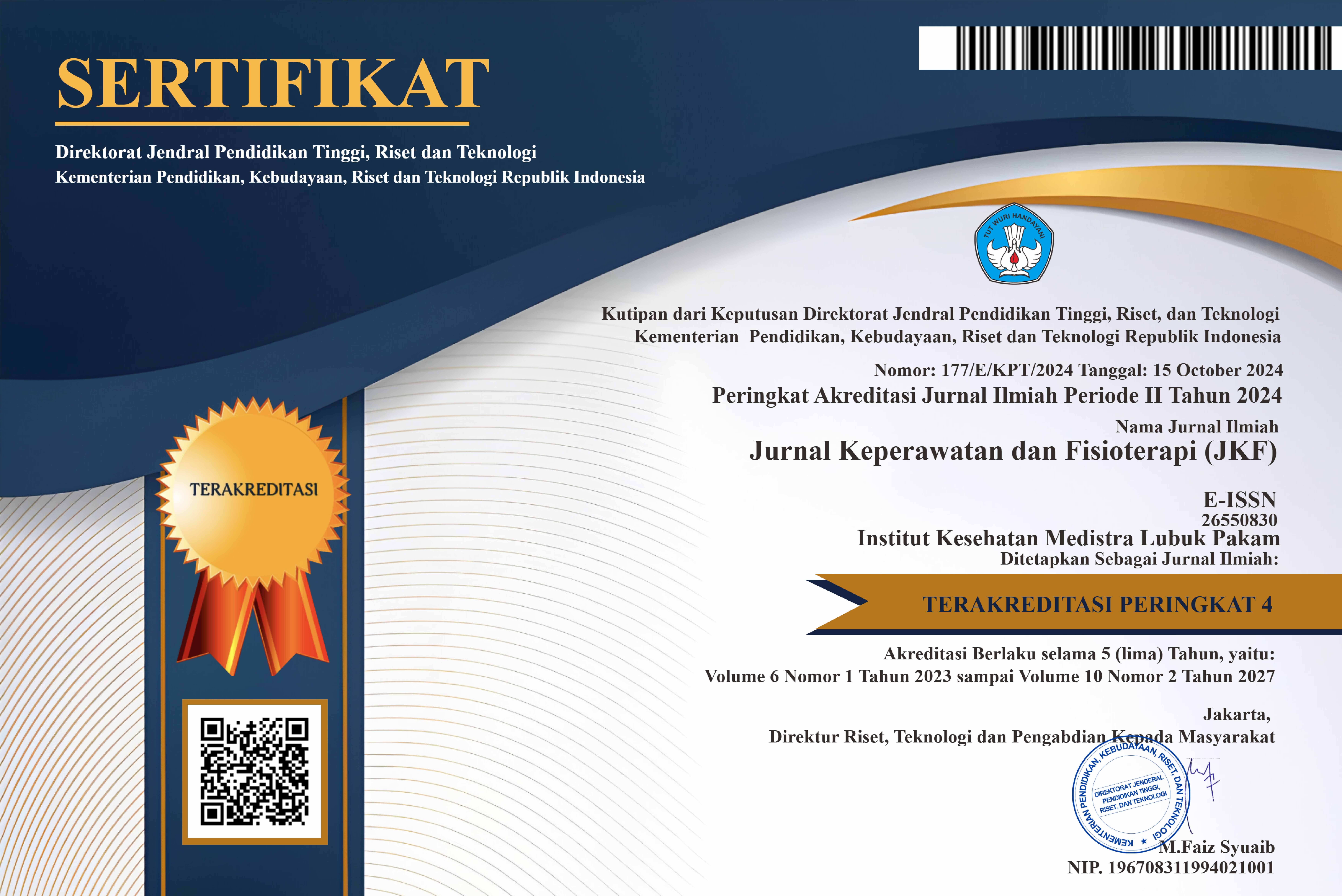The Factors Related with Obesity in Toddler
DOI:
https://doi.org/10.35451/jkf.v4i2.1045Keywords:
Related Factors, Toddler ObesityAbstract
Obesity is an abnormal condition characterized by an increase in body weight and an increase in excessive body fat, generally deposited in the subcutaneous tissue, around organs, and sometimes infiltrated into organs. According to the health profile of Riau Province, the highest achievement of under-five nutritional status based on the BW/U index during 2015 to 2019 was in 2018 (3.5) and the lowest was in 2016. The purpose of this study was to determine the factors associated with obesity in children. children under five in Sukapeace Village, North Tambusai District, Rokan Hulu Regency in 2021. This research is an analytic observational research type with a quantitative approach and uses a cross sectional research design. The population of this study were all children under five in Sukapeace Village, North Tambusai District, Rokan Hulu Regency in 2021. The samples obtained were 20 obese children under five. Data were analyzed for bivariate calculations which in this study used the chi-square test. The results showed that the variables that were shown to be associated with obesity in children under five in the village of Sukapeace were, Genetics with p value = 0.001. Diet with p value = 0.001, rest pattern with p value = 0.001 and physical activity p = 0.004. Based on bivariate analysis using the chi-square test, the variables associated with obesity are genetics, diet, sleep duration and physical activity. Increasing information about the prevention of factors related to obesity and obesity risk, as well as the role of health workers and family support is urgently needed
Downloads
References
Ariani, & Putri, A. (2017). Ilmu Gizi. Yogyakarta: Nuha Medika.
Adriani, Merryana & Bambang Wijatmadi. (2013). Pengantar Gizi Masyarakat. Jakarta: Kencana Prenada Media Group.
Istiany, Ari & Rusilanti. (2013). Gizi Terapan. Bandung: PT Remaja Rosdakarya.
Nazir, Mimi Yuliani, dkk. (2019). Profil Kesehatan Provinsi Riau. Pekanbaru: Dinas Kesehatan Provinsi Riau. https://dinkes.riau.go.id/sites/default/files/2020-12/Profil%20Kesehatan%20Provinsi%20Riau%202019.pdf
Nurrizka & Rahmah, H. (2019). Kesehatan Ibu dan Anak dalam Upaya Kesehatan Masyarakat. Depok: PT Raja Grafindo Persada.
Maryam, Siti. (2016). Gizi dalam Kesehatan Reproduksi. Jakarta Selatan: Salemba Medika.
Proverawati,. Atikah & Wati, K. (2017). Ilmu Gizi untuk Keperawatan dan Gizi Kesehatan. Yogyakarta: Nuha Medika.
S, Melfiawati. (2012). Buku Pedoman Terapi Diet dan Nutrisi. Jakarta: Hipokrates.
Setiawan, Ari & Saryono. (2011). Metodologi Penelitian Kebidanan. Yogyakarta: Nuha Medika.
Sibagariang, Eva Ellya, dkk. (2014). Metodologi Penelitian. Jakarta: CV.Trans Info Media
Sulistyaningsih. (2011). Metodologi Penelitian Kebidanan. Yogyakarta: Graha Ilmu.
Tristiyanti, Wara Fitria, dkk. (2018). Analisis Durasi Tidur, Asupan Makanan, dan Aktivitas Fisik sebagai Faktor Risiko Kejadian Obesitas pada Balita Usia 3-5 Tahun Surakarta: Sari Pediatri. file:///C:/Users/User/Downloads/1410-4142-4-PB%20(3).pdf
Winarsih. (2019). Pengantar Ilmu Gizi dalam Kebidanan. Yogyakarta: Pustaka Baru Press.
Paradep Singh, (2014) , Physical Activity : A Key for The Preculision of Obesity in Children.
Dwi Oktaviani, (2012). Hubungan Kebiasaan Konsumsi Fast Food, Aktivitas Fisik, PolaKonsumsi, Karakteristik Remaja dan Orangtua dengan Indeks Massa Tubuh (IMT) (Studi Kasus pada
Siswa SMA Negeri 9 Semarang Tahun 2012). Semarang: Universitas Diponegoro. Jurnal Kesehatan Masyarakat.
Downloads
Published
Issue
Section
License
Copyright in each article is the property of the Author.


























